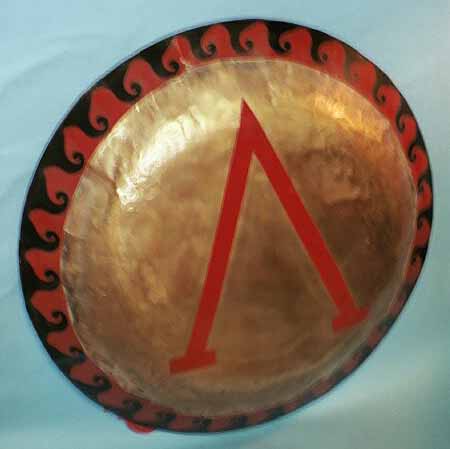
Generally, each hoplite chose his own shield design. This was true even of the Spartans, at least initially. There is an anecdote which talks of a Spartan who had a life-sized fly for his emblem. Accused of cowardice (his enemies wouldn't be able to recognize him) he responds that the fly would be the size of a lion when he closed his enemy in battle. However, they changed this personal-preference policy into one of state control, whereby each man carried the same badge - in this case the letter lambda (for Lacedaemon, another name for Sparta). Such shields are attested by Xenophon in the early 4th century BC. He also mentions men from Sicyon carrying the letter sigma as a badge, and the Thebans, as well as their allies, using a club, although the Thebans had used individual shield designs only a few years previously as shown by Plutarch: the man who killed Lysander had a dragon as his emblem. While such state badges seem to have become more common as time went on - the Macedonian Hellenistic states seemed to have regular shield patterns, many states continued with allowing their men to chose whatever badge they desired. One philosopher's was covered with quotes, another man's had the device of an anchor to demonstrate his determination not to retreat.
 |
It is widely assumed that Sparta was the first state to introduce uniform shield patterns, but the evidence does not bear this out. The Mantineans may have adopted the trident of Poseidon by the mid 5th century. One theory is that Spartans first introduced the lambda not for Homoioi (full citizens), but for helots that were serving as hoplites, and its usage probably spread from there to the rest of the army. Shield blazons were an individual's prerogative, but when helots were armed as hoplites, they would have been provided with their shields by the state, not have bought them individually. The shields in fact would have been state property, not theirs, and therefore are likely to have been emblazoned with an emblem of the state. This would emphasize that the bearers were not individual citizens, but servants of the state (although, like Brasidas' men, they could be raised up later for good conduct as Neodamodeis).